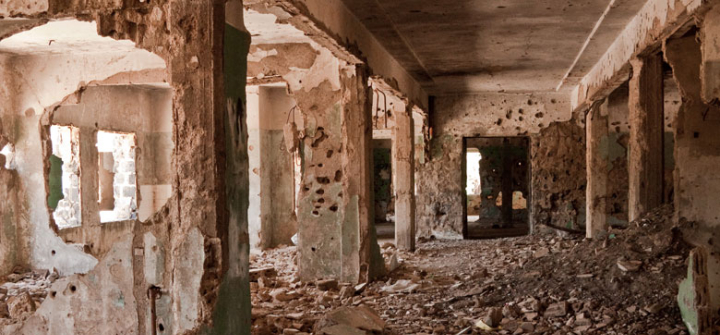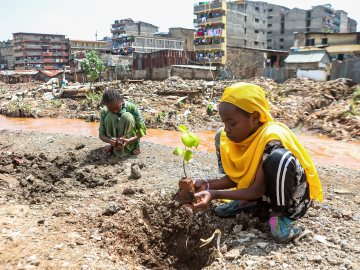Fast-Track Protection for Health Workers
Just before WHO Director-General Margaret Chan gave her plenary speech to the World Health Assembly delegates on May 18, the Assembly held a moment of silence and a candle was lit in memory of the many health workers killed in the line of duty.
The centrality of the problem of attacks on health workers, facilities and patients was underscored by the release Wednesday of a report by Human Rights Watch and the Safeguarding Health in Conflict Coalition showing that at least 20 countries undergoing conflict and civil unrest since January 2014 have experienced such attacks.
The 22-page report, “Attacks on Health: Global Report,” highlights recent attacks in countries around the world. Over the past year, armed groups have attacked hospitals, clinics and health personnel in 41 incidents in Afghanistan and deliberately killed over 45 health workers, primarily polio vaccinators, in Nigeria and Pakistan. In Syria, where medical facilities in Aleppo have been hit with government barrel bombs, 194 medical personnel have been killed and 104 medical facilities attacked since 2014.
The problem will also be subject of discussion of a major event hosted by 9 member states, led by the Netherlands and New Zealand, along with WHO and other UN agencies and the Coalition on May 20.
The UN General Assembly called on member countries in December to take concrete steps to improve protection for health workers. The coalition includes more than two dozen human rights, health and health professional, and other nongovernmental groups. However, ongoing targeted attacks on health facilities and violence against health workers, and the absence of a robust system of accountability for them, indicates that much more needs to be done.
The report urges that WHO fast-track its initiative to develop systems to collect and disseminate information on attacks on medical facilities and personnel. It also asks governments and non-state armed groups to do more to prevent attacks and to hold accountable those responsible.
The report describes numerous recent attacks on health care:
- In South Sudan, where 58 people were killed in 4 hospitals in a series of attacks in early 2014, and in eastern Ukraine, where it is estimated that 30 to 70% of health workers have fled the region because of insecurity.
- In Yemen, Al-Qaeda in the Arabian Peninsula (AQAP) militants carried attacked health facilities in early 2014, and the 10-country Saudi-led coalition conducted air strikes that hit hospitals and interrupted medical supplies during the conflict in early 2015.
- Relying on data from Insecurity Insight’s Security in Numbers Database, the report also shows trends in attacks on health care over the course of a decade in South Sudan and Central African Republic.
The report also noted attacks on health workers in Guinea, Liberia, and Sierra Leone during the unprecedented Ebola outbreak. In each country, fear and distrust, including the belief that health workers were spreading the disease, led to attacks on health facilities and personnel.
- In Liberia, looters stole medical equipment, food, and bedding from an Ebola quarantine center in August, causing patients and health workers to flee.
- In Sierra Leone, health workers came under attack while trying to bury the bodies of five Ebola victims in September.
- And in Guinea, a crowd shouting “Ebola is a lie!” attacked health workers after a market was sprayed with disinfectant. 8 people, including health workers, local officials and journalists providing information about Ebola, were killed in September with machetes and clubs. A Guinean court sentenced 11 people to life in prison for the deaths in April 2015.
The report also looked at government actions affecting health care during political turmoil. Turkey, for instance, passed a law criminalizing the provision of emergency care without official authorization, potentially subjecting health workers to imprisonment for 1-3 years for treating injured protesters.
Leonard Rubenstein is chair of the Safeguarding Health in Conflict Coalition and director of the Program on Human Rights, Health and Conflict at the Center for Public Health and Human Rights at the Johns Hopkins Bloomberg School of Public Health
Image by Will De Freitas,




